Zoran Ferić
Zoran Ferić (1961) is one of the most widely read contemporary Croatian writers. His work has received numerous prizes, including the Ksaver Šandor Gjalski Prize in 2000 and the Jutarnji List Award for the best work of prose fiction in 2001 and then again in 2011. His books have been translated into English, German, Slovenian, Polish, and Hungarian.
Zoran Ferić was born in 1961 in Zagreb. He is among the most widely read of contemporary Croatian writers. His work has received numerous prizes, including the Ksaver Šandor Gjalski Prize in 2000 and the Jutarnji List Award for the best work of prose fiction in 2001 and then again in 2011.
Ferić is the author of three collections of short stories, a collection of newspaper columns, and three novels: Mišolovka Walta Disneya, Quattro stagioni (with M. Kiš, R. Mlinarec and B. Perić), Anđeo u ofsajdu, Otpusno pismo, Smrt Djevojčice sa žigicama, Djeca Patrasa, and Kalendar Maja. His books have been translated into English (Autumn Hill Books), German (Folio Verlag), Slovenian, Polish, Italian and Hungarian. He lives in Zagreb where he teaches Croatian literature at a high school.
Books
- 1996 – Mišolovka Walta Disneya (Walt Disney's Mousetrap), short stories
- 1998 – Quattro stagioni (Four Seasons; in co-operation with Miroslav Kiš, Robert Mlinarec and Boris Perić), short stories
- 2000 – Anđeo u ofsajdu (An Angel in Offside), short stories
- 2002 – Smrt djevojčice sa žigicama (The Death of the Little Match Girl), novel
- 2003 – Otpusno pismo (Letter of discharge)
- 2005 – Djeca Patrasa (The Children of Patras), novel
- 2007 – Simetrija čuda (The Symmetry of The Miracle), prose selection
- 2011 – Kalendar Maja (Maya Calendar), novel
Neven Ušumović: Chikungunya (extract)
Of course he didn’t take him all the way to the Croatian border. He left him near Parecag, at a bus station. This driver didn’t say a word, he drove all to Koper in silence; all right, true, it was Monday, no one felt like talking. He only said srečno, wished him good luck, and motioned him to get out. He crossed the road and after only a few steps found the place where he could wait for another car.
Josip Mlakić: A Summer Journey
At dusk, we entered a small town called S. that had been taken that day. I, colonel Petrovic, the commander of the second battalion, his driv¬er and a person from Belgrade called Markica were in a carelessly paint¬ed greyish-olive jeep with its previous white, UN colour showing through. Everyone in the brigade called Markica Aids. He was a thin and pale young man who was with Arkan when the war started. He was dressed up as if going to a parade, and over his back he had a long dag¬ger just like some post-apocalyptic samurai, even though it made the ride unbearable for him.
Dorta Jagić: Some Selected Poems
Dorta Jagić writes poetry, short prose pieces, drama and theatre reviews, and translates from English and German into Croatian. Since 1999, she has been involved with various amateur theatre groups as a director and educator.
Her work has been widely translated.
Her poetry has been awarded both in Croatia and abroad.
Sibila Petlevski: Poems
These recent poems from the forthcoming collection Passwords of Oblivion exemplify the interplay in Sibila Petlevski’s work between the outer and inner worlds.
What to Listen to When Travelling to Croatia
When travelling, we often rely on playlists or podcasts to fill the silence between destinations. But what if your headphones could offer something more immersive, not just background noise, but a way into the soul of the place you’re in?
With the growing library of Croatian audiobooks in English and a selection of pure field recordings from the country's most striking natural settings, book&zvook, Croatia’s first digital audiobook platform, invites travellers to experience the country through its voices, its literature, and its soundscapes.
Whether you're strolling through stone alleys, stuck in ferry queues, or watching the horizon from a car window, here’s what to listen to while Croatia unfolds around you.
Želimir Periš: The Bony-Legged Bride
The Bony-Legged Bride accompanies the fate of the “witch” Gila, who practiced healing and herbalism in the 19th century. The novel traces her travels from Herzegovina through Dalmatia, Lika, Istria, and finally Imperial Austria, with a non-linear plot extending through a swathe of the 19th century. The book’s postmodernist collage plays with the contemporary understanding of the term “witch”. In the time the story is set, a woman who practiced healing in Croatian villages was called a healer, powerful mother, fairy woman or witch. The novel follows several medical “cases” that Gila solves, which often involve mental disorders or common existential challenges of her “patients”, rather than physical illnesses. The novel mystifies and demystifies the notion of witchcraft and the concept of writing a novel. The Bony-Legged Bride is structurally complex but nevertheless spirited. Its fifty-two chapters and six appendices weave a lively fabric of beliefs and superstitions, narratives and fables, in the rhythm of a decasyllabic Balkan folk song: comical, mocking, grotesque and melancholic.
So Long, Friend: Remembering Jonathan Bousfield
Sadly, our long-time collaborator and friend, Jonathan Bousfield, passed away this April, leaving behind an enormous hole in the local cultural scene.
Over the years we have liberally linked to various articles from Jon’s excellent blog, Stray Satellite, here on Critical Mass because quite simply there was nothing else like it. Stray Satellite is an impressive kaleidoscope of various topics mainly focused on Croatia and the greater Eastern Europe region, ranging from alternative and pop culture to music, history, travel, literary and film reviews, social movements, and more.
Nora Verde: My Dowry
Nora Verde’s Moja dota (“My Dowry”) follows the story of a defiant little girl at the beginning of the 1980s. It is a story of a girl with a Prince Valiant-inspired haircut and yellow shorts travelling from Split to Vela Luka with a bag full of Martin Mystery comics to spend the summer every year with her beloved grandmother. The idyll of days passed with grandma, days filled with chores, songs and storytelling, is broken by the threatening presence of the girl’s uncle. With every passing year, the girl is burdened more and more by the feeling of not belonging to her working-class, hard-working family. Torn between city and island life, the standard language and the dialect, female and male gender expression, she finds her way to freedom and independence through education and writing. Subtly reminiscent of the works by Annie Ernaux and Édouard Louis, My Dowry tells a touching and painfully striking story about an adolescence overshadowed by class shame, anger and the exploration of sexual orientation; it enriches the existing literary corpus that focuses on growing up on the islands, and brings an indispensable class and gender perspective to it.
Marija Andrijašević: An Excerpt from The Land Without Twilight
Marija Andrijašević (1984) was born and raised in Split. She finished trade school in 2008 then obtained her Masters in Comparative Literature and Ethnology and Cultural Anthropology from the University of Zagreb, Faculty of Philosophy in 2015. She also completed a one year program at the Center for Women’s Studies in Zagreb in 2016. Her works include the poetry collection davide, svašta su mi radili (2007) (David, They Did All Sorts of Things to Me), which won the Goran Award for Young Poets, and her debut novel Zemlja bez sutona (2021) (The Land Without Twilight) which took home both the regional award Štefica Cvek and the prestigious tportal award for the best novel of the year.
Lora Tomaš: An Excerpt from Salty Darkness
Lora Tomaš holds a bachelors degree in Indology and English Studies from the Faculty of Philosophy, University of Zagreb. She earned her masters degree in Gender Studies from Central European University. Tomaš co-edited and co-translated two anthologies of modern Indian short prose and poetry- Popodnevni pljuskovi: izbor iz indijskog ženskog pisanja (2011) (Afternoon Showers: a selection of Indian women's writing) and Lotosi od neona: indijski autori o gradovima i drugim ljubavima (2017) (Neon Lotuses: Indian authors on cities and other loves). An early version of her first novel, Slani mrak (2020) (Salty Darkness), was a finalist for the V.B.Z. award for the best unpublished novel of 2019 and later she added her short story Prozor s pogledom (A Window With a View), also a finalist for a European award, to the novel. Her debut novel Slani mrak (2020) (Salty Darkness) earned her the 2020 Slavic award given by the Society of Croatian Writers.
Tomaš lived in Southeast Asia for several years, working as a journalist and literary critic for local publications. She now lives in Zagreb and works as a literary translator and a language teacher.
Read an excerpt from Tomaš's novel, Salty Darkness, in the link below.
Translation by Mirna Čubranić.
Poetry from Ana Brnardić: The Other Sister
Ana Brnardić was born in 1980 in Zagreb. She holds a Master’s degree in the Croatian Language and Literature and Comparative Literature from the Faculty of Philosophy, University of Zagreb. She also earned a Master’s degree in Music, specifically for the violin, from the Music Academy in Zagreb. She has published five collections of poetry: Pisaljka nekog mudraca (1998) (Some Sage’s Pen), Valcer zmija (2005) (Waltzing Snakes), Postanak ptica (2009) (Genesis of Birds), Uzbrdo (2015) (Uphill) and Vuk i Breza (2019) (A Wolf and a Birch). Her poetry has been translated into fifteen languages and included in various anthologies, literary magazines and web portals. Brnardić has won several prestigious regional poetry awards for her work including the Goran’s Spring Award and the Slavić and Kvirin Award for Young Poets. She participates in various poetry festivals and online poetry platforms such as Versopolis, writes book reviews and also translates Romanian literature into Croatian. Brnardić lives and works in Zagreb.
Read Brnardić’s poem The Other Sister in the link below.
Translation by Chelsea Sanders.
Karmela Špoljarić: Excerpt from Rashomon
Karmela Špoljarić was born in Zagreb in 1967. She earned her bachelor’s degree in Croatian Studies and Yugoslavian Philology from the University of Zagreb. She also holds a master’s degree in the Scientific Study of Literature from the University of Zagreb. She writes prose and theater scripts. She has published the teen drama Nula kuna po minuti (2011) (Zero kunas per minute), which won the Marin Držić award. Her novel Nije ovo Twin Peaks (2014) (This Isn’t Twin Peaks) won the DHK Slavić award. She has also published a collection of short stories Pazi što ćeš poželjeti (2013) (Be Careful What You Wish For), the novel Major Tom (2014) and the novel Rašomon (2019) (Rashomon). Her short stories have been published in various literary magazines. Another of Špoljarić’s passions is creating and running tailored creative writing workshops. She splits her time between Zagreb and the island of Krk.
As Dubravka Šćukanec writes in her review of the novel “The novel Rashomon is a bitter story about many of us, those of us who whine about the past, who ask ourselves at which station the train of life took a turn towards wastelands and bleakness, about those of us who seek causes and blame in other people and events which marked us with life’s misery.” (Šćukanec, Dubravka, 4.6.2021, GKR Magazin).
Read an excerpt from Špoljarić’s most recent novel Rashomon below.
Translation by Mirna Čubranić.
Tomica Šćavina: Excerpt from A Room at the Bottom of the Sea
Tomica Šćavina was born in 1975 in Vodice. She holds a Psychology degree from the University of Zabreb. She has published two books which are compilations of her psychology columns: Unutarnji kompas (2009) (Internal Compass) and Koordinate sreće (2012) (Coordinates of Happiness). Her first novel Brod za Lajku (2011) (A Boat for Lajka) was shortlisted for the VBZ award for the best unpublished novel of the year. Her second novel, Povratak genija (2013) (The Return of Genius), won the SFera award for the best science fiction novel. Her most recent novel is Soba na dnu mora (2019) (A Room at the Bottom of the Sea). She has also published poetry in various regional literary magazines. In addition, Šćavina has written five documentary radio plays for Croatian Radio, which earned her a European Union award. Alongside her fiction writing and psychology columns, Šćavina has led numerous creative workshops and workshops dedicated to personal growth for children and adults.
Šćavina’s novel, A Room at the Bottom of the Sea, introduces us to Giana as she begins her new life as a cruise ship waitress, naïve to the dog-eat-dog conditions of her new workplace and haunted by her past of coming of age during the war in Croatia. Read a passage below.
Translation by Ellen Elias-Bursac.
Nenad Stipanić: Excerpt from Neon Gods
Nenad Stipanić was born in Senj in 1973, but has spent most of his life in Zagreb. His short stories have been published in numerous reputable regional literary magazines as well as various anthologies. He has published several collections of short stories: Sprinteri u labirintu (2005) (Sprinters in a Labyrinth), Odlično je baviti se kriminalom (2008) (It’s Great to Be a Criminal). Stipanić has also published several novels including Izbacivači Majke Božje (2012) (The Mother of God Bouncers) and Stvarno je odlično baviti se kriminalom (2015) (It’s Really Great to Be a Criminal). He won the Ministry of Culture Prize for the Best Literary Achievement in 2012 with his novel The Mother of God Bouncers and his novel It’s Really Great to Be a Criminal received the Balkan Noir Prize for the Best Croatian Criminal Novel in 2015. His latest novel Bogovi neona (2019) (Neon Gods) was a finalist for the Croatian Tportal Literary Award as well as the European Union Literature Prize.
Stipanić has worked various jobs throughout his life including all types of manual labor, ticket sales, tourist guide, bouncer in Croatian clubs and abroad, bodyguard, the owner of an art gallery and used book store, scriptwriter etc. He now devotes most of his time to his literary career. He currently lives in Berlin.
Read a passage below from Stipanić’s latest novel, Neon Gods, which the legendary editor Kruno Lokotar described as “…one of the most radical experiments in Croatian literature and an attempt to introduce the genre of bizarre fiction with elements of bizzare freaktion into the local literary scene…” (Lokotar, Kruno, 2019.6, Moderna vremena, https://mvinfo.hr/knjiga/12892/bogovi-neona).
Translation by Vesna Marić.
Ante Zlatko Stolica: Short stories from his book Close to Everything
Ante Zlatko Stolica was born (1985) and raised in Split. He holds degrees in Croatian Language and Literature and Philosophy. He has written several short documentaries, film scripts and a collection of short stories Blizina svega (2020) (Close to Everything). He is a co-screenwriter for the film Kratki izlet (2017) (A Short Excursion), which won the Zlatna arena award for the best film of the year.
Stolica’s eclectic stories deal mostly with the young protagonists’ ventures into the adult world of work and the string of dead-end jobs they are faced with, set in his hometown of Split.
Read some stories from Stolica’s book Close to Everything below.
Translation by Marta Huber.
Jasna Jasna Žmak: Excerpt from My Dear You
Jasna Jasna Žmak was born in 1984 in Pula. She earned her bachelor’s degree in Dramaturgy from the Academy of Dramatic Art (University of Zagreb). She then went on to complete a PhD in Literature, Applied Arts, Film and Culture at the University of Zagreb. Žmak has published a book of essays One stvari: eseji o ženskoj seksualnosti (2020) (Dirty Words: Essays on Female Sexuality, a book of prose Moja ti (2015) (My Dear You), two theater scripts Samice (2011) (Solitary Confinements) and Drugi sočasno (2012) (Others Simultaneously), one picture book Pisma na kraju šume (2018) (Letters at the End of the Forest), one scientific study, and countless short stories and critical essays. Žmak currently works as an assistant professor at the Academy of Dramatic Art (University of Zagreb).
Read an excerpt from Žmak's book of prose, My Dear You, in the link below.
Translation by Samantha Farmer.
Damir Karakaš: It's Me
Damir Karakaš was born and raised in a rural, impoverished village in the mountainous region of Lika in 1967. The rough, folksy surroundings of his childhood are often present in his work and are viewed through a critical lens. He studied Agronomy, Law and Journalism in Zagreb and worked for several years as a journalist. Karakaš is a prolific writer and his many publications include the travelogue Bosanci su dobri ljudi (1999) (Bosnians Are Good People), the novel Kombetari (2000), the novel Kino Lika (2001) (Lika Cinema), the novel Kako sam ušao u Europu (2004) (How I Entered Europe), the short story collection Eskimi (2007) (Eskimos), the novel Sjano mjesto za nesreću (2009) (A Fantastic Spot for an Accident), the play Skoro nikad ne zaključavamo (2009) (We Hardly Ever Lock Up), the collection of short stories Pukovnik Beethoven (2012) (Colonel Beethoven), the play Snajper (2013) (Sniper), the novel Blue Moon (2014), the novel Sjećanje Šume (2016) (The Remembering Forest), the novel Proslava (2019) (The Celebration), and his latest novel Okretište (2021).
Read Karakaš’s poignant, dark short story about returning to one’s childhood home as an adult and the weight of being confronted with emotions that were thought to have been left safely in the past.
Read his short story It’s Me in the link below.
Translation by Stephen M. Dickey.
Bekim Sejranovic: Excerpt from his novel A Better Place
Bekim Sejranović (1972-2020) was born in Brčko, Bosnia and Hercegovina. He also lived and studied in Rijeka, Croatia and moved to Oslo, Norway in 1993 where he earned his master’s degree in South Slavic Languages and Literature from the University of Oslo. Sejranović is the author of a collection of short stories and five novels. His novel Nigdje, niotkuda (2008) (Nowhere, From Nowhere) won the prestigious Meša Selimović award in 2009.
Sejranović’s writing often centered around questions of identity and nomadism, perhaps mirroring his own life: a child of divorce, he was raised primarily by his grandparents, grew up in a town splintered by the war, spent his young adulthood in wartime Croatia and finally reached Norway as a refugee in 1993, where he had security and official status, but not necessarily a home.
Darko Šeparović: Excerpt from The Pier
Darko Šeparović was born in 1987 in Vela Luka on the island of Korčula. Although he holds a degree in Architecture from the University of Zagreb, today he is mostly involved in writing poetry and prose. He has also published literary reviews and interviews in a number of regional literary magazines. His publications include the collection of poetry Autopilot (2015) and the novels Krvotok (2018) (Bloodstream) and Pristanište (2020) (The Pier). Šeparović’s works have been translated into English, Greek, Slovenian and German.
Read an excerpt from his latest novel, Pristanište (The Pier) below.
Translation by Rachael Daum.
Rebecca Duran's Take on Modern Day Life in Pazin (Istria)
Croatia is a small, charming country known today as a prime European tourist destination. However, it has a complicated often turbulent history and is seemingly always destined to be at the crossroads of empires, religions and worldviews, with its current identity and culture incorporating elements from its former Communist, Slavic, Austrian-Hungarian, Catholic, Mediterranean, and European traditions.
Maša Kolanović: Unending
Maša Kolanović was born in Zagreb in 1979 and holds a PhD in Croatian Language and Literature from the University of Zagreb. She has published multiple books including the poetry collection Pijavice za usamljene (Leeches for the Lonely, 2001), the novel Sloboština Barbie (Underground Barbie, 2008), the monograph which served as her doctoral thesis, Udarnik! Buntovnik? Potrošač… (Striker! Rebel? Consumer…, 2011), the prose poem Jamerika (2013), and the short story collection Poštovani kukci i druge jezive priče (Dear Pests and Other Chilling Stories, 2019). Kolanović was the 2020 recipient of the European Prize for Literature. She also writes essays on literature and culture and has co-edited several books. Kolanović is an associate professor in the Croatian Studies Department at the University of Zagreb.
Peek into the less sunny side of motherhood that society doesn’t necessarily prepare women for as the protagonist of Kolanović’s short story Unending considers her own journey through pregnancy and motherhood including the required loss of independence at the most essential level: one’s body.
Read the short story Unending below.
Translation by Ena Selimović.
Review of Dubravka Ugrešić's Age of Skin
Dubravka Ugrešić is one of the most internationally recognizable writers from Croatia, but she has a contentious relationship with her home country, having gone into self-exile in the early 90s. Her recently translated collection of essays, The Age of Skin, touches on topics of of exile and displacement, among others. Read a review of Ugrešić’s latest work of non-fiction, expertly translated by Ellen Elias-Bursac, in the link below .
Ilija Đurović: Excerpt from Sampas
Ilija Đurović was born in 1990 in Podgorica, Montenegro. After finishing high school, he went on to study literature. He has been writing stories since 2005. His first book of prose, They Do It so Beautifully in Those Great Romantic Novels, came out in 2014 with Yellow Turtle Press, a small Montenegrin publishing house he runs. This was followed by Black Fish (2016) and the poetry book Brink (2018), which received an award at a festival in Belgrade. Đurović has been living in Berlin since 2013 and living as a versatile freelance author and publicist. In 2019 he was co-winner of the Montenegrin theater award for the best contemporary drama, Sleepers. His first novel, Sampas, will be published in Belgrade in 2021.
Translation by Will Firth.
This translation was done as part of the "texthelden - Berlin setzt über" project of the association Berliner Literarische Aktion, funded by the German Federal Government's Commissioner for Culture and Media, the German Translators' Fund and the "Neustart Kultur" programme.
Ivana Bodrožić: Excerpt from Klara, Full of Wonder
Ivana Bodrožić was born in 1982 in Vukovar, Croatia. She graduated with a master’s degree in Philosophy and Croatian Language and Literature from the University of Zagreb. Her debut collection of poetry, Prvi korak (2005) (The First Step), received numerous accolades and awards. Bodrožić published her first novel, Hotel Zagorje (The Hotel Tito), in 2010 and the coming-of-age story about a young refugee girl whose father goes missing in the Croatian Homeland War of the 1990s was met with great acclaim in both Croatia and on the international stage and was widely translated into multiple languages and published abroad. Her most recent project is the children’s book, Klara Čudastvara (2019) (Klara, Full of Wonder), which she collaborated on with the prize-winning illustrator, Vendi Vernić.
Take a trip back to childhood and muse on what forces shaped your perception of the world when you read this whimsical tale of a brave little girl, Klara, full of wonder, and her unbelievable summer.
Translation by Vesna Marić.
Review of Neva Lukić's Endless Endings
Read a review of Neva Lukić's collection of short stories, Endless Endings, recently translated into English, in World Literature Today.
A Guide to Zagreb's Street Art
Zagreb has its fair share of graffiti, often startling passersby when it pops up on say a crumbling fortress wall in the historical center of the city. Along with some well-known street murals are the legendary street artists themselves. Check out the article below for a definitive guide to Zagreb's best street art.
Ernesto Estrella: A Selection of Poems from his Forthcoming Collection The American Heart
Ernesto Estrella is a New York-based poet and educator. He is the author of Boca de Prosas and Achronos, and is currently finishing his first poetry collection in English, The American Heart. Ernesto has translated the works of Henry David Thoreau and John Muir into Spanish and has written a number of books and articles on Poetic Theory and Performance Studies. He is a former Yale University professor of Contemporary Poetry and has been showcased in seminars at leading institutions such as the Great Books Foundation, New York Historical Society, Bowery Poetry Club, Walden Woods Project, and the Thoreau Society. In 2021, he launched The Voice of Recovery podcast which uses poetry and storytelling as tools for wellness and mental health. https://www.themapofyourtraps.com/podcast
The selected poems below are from Estrella's forthcoming poetry collection, The American Heart.
Beloved Croatian Children's Show Professor Balthazar Now Available in English on YouTube
The colorful, eclectic and much beloved Croatian children's cartoon Professor Balthazar was created by Zlatko Grgić and produced from the late 1960s through the 1970s. Now newer generations will be able to enjoy the Professor's magic, whether they speak Croatian or English.
Ivana Bodrožić's Novel Recognized in America
Ivana Bodrožić’s novel We Trade Our Night for Someone Else’s Day was recognized as one of the Best International Crime Novels of 2021 by the American cultural website CrimeReads.
Robert Perišić: No-Signal Area
American critics praise Robert Perišić’s No-Signal Area
After the international success of Our Man In Iraq by Robert Perišić, translated into a dozen languages across the globe, his novel No-Signal Area continues to spark interest of international publishers. The novel was published in the USA last month by the prominent publishing house Seven Stories Press and received glowing reviews, confirming Perišić as a contemporary author of international renown.
An English Book on Croatian Football Legend Robert Prosinečki
Robert Prosinečki's long and fabled football career includes winning third place in the 1998 World Cup as part of the Croatian national team, stints in Real Madrid and FC Barcelona as well as managerial roles for the Croatian national team, Red Star Belgrade, the Azerbaijani national team and the Bosnian Hercegovinian national team.
Valent Pavlić: Excerpt from Evanesco
Valent Pavlić was born in 1985. He grew up in Zagreb and graduated from the University of Zagreb with a degree in French Language and Literature and Art History. He has published two collections of short stories Evanesco (2016) and Prepreke. Prečaci. (2019) (Obstacles. Shortcuts).
Pavlić’s unique and unsettling tale about a man who embarks on chosen isolation from others will resonate even more for readers who have lived through two pandemic years.
Read an excerpt from Pavlić’s debut novel, Evanesco, below.
Translation by Mirna Čubranić.
Bekim Sejranović: Excerpt from his novel From Nowhere To Nowhere
Bekim Sejranović (1972-2020) was born in Brčko, Bosnia and Hercegovina. He attended nautical school in Rijeka, Croatia where he also studied South Slavic Languages and Literature. He moved to Oslo, Norway in 1993 where he continued his studies, earning a master’s degree in South Slavic Languages and Literature. Sejranović is the author of a collection of short stories, Fasung (2002), and five novels: Nigdje, niotkuda (2008)(Nowhere, From Nowhere), Ljepši kraj (2010) (A Better Place), Sandale (2013) (Sandals), Tvoj sin Huckleberry Finn (2015) (Your Son Huckleberry Finn) and Dnevnik jednog nomada (2017) (The Diary of a Nomad). His novel Nigdje, niotkuda (2008) (From Nowhere To Nowhere) won the prestigious Meša Selimović award for the best novel published in Bosnia and Herzegovina, Croatia, Serbia or Montenegro in 2009. Bejranović was an official court translator and also translated Norwegian literature into Croatian. His own writing was translated into many languages including English, Norwegian, German, Italian and Polish.
The following passage is the first chapter in Sejranovic’s debut and award-winning novel, Nigdje, niotkuda (2008) (From Nowhere to Nowhere). This opening chapter deals with the protagonist’s experience of a traditional Bosnian funeral in his hometown, which raises emotions and questions encompassing religion, politics and identity.
Translation by Will Firth.
French Translation of Jurica Pavčić's Red Water Wins French Award for Best Crime Novel
The French translation of Jurica Pavčić's Crvena Voda (Red Water) snagged the 2021 Grand Prix de Litterature Policiere, France's esteemed award for the best international crime novel.
Crvena Voda was translated into the French by Olivier Lannuzel.
An Interview with Igor Štiks
In an interview with acclaimed Sarajevo-born author Igor Štiks, he discusses human agency in the face of consequential historical events, which is the central conflict in his new novel, W. Štiks also touches on the parallels between the events leading up to the breakup of Yugoslavia and current European nationalist politics as well as the common linguistic legacy shared by countries of the former Yugoslavia.
Review of Ivana Bodrožić's Novel: We Trade Our Night For Someone Else's Day
Read a review of Ivana Bodrožić’s bombshell of a novel We Trade Our Night for Someone Else’s Day, translated by Ellen Elias-Bursać.
Krleža as Seen by French Critics
Six of Krleža's books have been translated into French: The Burial at Theresienburg (short stories, Editions de Minuit, translated by Antun Polanšćak, preface by Leon-Pierre Quint, Paris, 1956.), The Return of Philip Latinovicz (novel, edited by Calman-Lévy, translated by Mila Đorđević and Ciara Malraux, Paris, 1957.], The Banquet in Blithuania (novel, edited by Calman-Lévy, translated by Mauricette Beguitch, Paris, 1964.), I’m not Playing Anymore (novel, Edition de Seuil, translated by Janine Matillon, Paris, 1969.], Mars, Croatian God (short stories, Edition Calman-Lévy, translated by Janine Matillon and Antun Polanšćak, Paris, 1971.), The Ballads of Petritsa Kerempuh (Edition: Presses orientales de France, translated by Janine Matillon). All these books were well received. We give here some extracts from criticisms (Maurice Nadeau, Léon Pierre Quint, Claude Roy, Marcel Schneider, Robert Bréchon, Jean Bloch-Michel and others) who provide various insights into Krleža`s work.
The article was originally published in Most/The Bridge literary review (number 3-4, 1979).
Miro Gavran: Excerpt from Kafka's Friend
Miro Gavran is a prolific Croatian playwright and novelist whose work is celebrated both at home and abroad. His plays and novels have been translated into 40 different languages, and his scripts have been used in over 300 plays worldwide. The eponymous festival Gavranfest, consisting of a week of exclusively Gavran’s plays, is held annually in Croatia, Slovakia, Poland and the Czech Republic.
Gavran was born in Gornja Trnava in 1961. He holds a degree in Theater from the Academy of Theater, Film and Television in Zagreb. In the early 1980s, he worked as a theater director for then prestigious Zagreb theater, Theater &TD. He has made his living exclusively as a writer and playwright since 1993. Gavran has penned more than forty plays as well as ten novels. He has won twenty awards in Croatia and abroad for his work, including the prestigious Central European Time Prize, which recognizes Central European authors for their entire opus. He is an associate member of the Croatian Academy of Sciences and Arts and is a member of the Russian Academy of Literature.
In his novel, Kafka’s friend, Gavran explores and speculates what one of history’s most famous friendships of equals and opposites must have been like: that of contemplative, reserved and brooding Franz Kafka and his more open friend, also a writer, Max Brod, who as the executor of Kafka’s estate, famously published Kafka’s work against his wishes.
Read an excerpt from Gavran’s novel, Kafka’s Friend, in the link below.
Translation by Nina H. Kay-Antoljak.
Tomislav Medak on Zagreb's 5.5 Richter Earthquake in the Time of Coronavirus
Tomislav Medak (b. 1973) holds a degree in Philosophy and German Studies from the University of Zagreb. He is currently a doctoral student at Coventry University in the Centre for Postdigital Cultures. Medak is the author of two books: A Guidebook to Domination by Abstraction (2016) and Shitty Tech for a Shitty World (2015). He has co-authored several other books and edited volumes. Medak has organized and participated in multiple conferences and talks with themes ranging from political theory to the commons to cultural policy over the last twenty years. He is also very active in the experimental theatre group BADco. as an actor, playwright, and director.
In his post on the convergence of two rare disastrous events in Zagreb (last week’s strong earthquake and Coronavirus), Tomislav Medak paints a jarring picture of Zagreb residents huddling outside in the cold after being quite literally shaken awake and at the same time their world is crumbling around them trying to observe social distancing so as not to reap the wrath of the current invisible threat that is Coronavirus. He challenges readers to observe how disaster preparedness and government response to disasters reveals attitudes about the collective good and asks readers to use these events as a catalyst for rethinking society’s relationship to the market.
Jonathan Bousfield on the Seedy Side of the Seaside
From strange tales of mysterious murders to suspected criminals hiding out to scams, duels and gambling, Opatija, a favourite seaside escape for Central Europeans at the turn of the last century, routinely filled Austrian headlines and the public's imagination in the early 20th century.
Marina Vujčić: Excerpt from The Anatomy Issue
Marina Vujčić, born in 1966 in Trogir, is a writer, columnist and editor. Vujčić holds a degree in Croatian Language and Literature from the University of Zagreb. She’s published Bijeg uz Brijeg (2002), Tuđi život (2010) (Someone Else’s Life), A onda je Božo krenuo ispočetka (2014) (And then Božo Started from the Beginning), Umri ženski (2014), Mogla sam to biti ja (2015) (It Could Have Been Me), Susjed (2015) (Neighbor), Otpusno pismo (2016) (Letter of Discharge), Pitanje anatomije (2017) (The Anatomy Issue). Her novel, Neighbor, won the VBZ and Tisak Media award for Best Unpublished Novel in 2015. She lives and works in Zagreb.
Vujčić’s novel begins with an unusual request: a widower places an ad in the paper looking for someone to scratch his back and his ad is cautiously answered by a woman looking to make some extra money. This is the starting point Vujčić uses to explore the boundaries of human relations in a post-modern urban society where people are increasingly alienated from one another, and many peoples’ lives and relationships are defined by a series of contractual agreements.
Read an excerpt from Vujčić’s novel, The Anatomy Issue, in the link below.
Translation by Mirna Čubranić.
Dino Pešut: Excerpt from Bruised Knees
Dino Pešut (1990) hails from Sisak. He holds a degree in Dramaturgy from Zagreb's Academy of Dramatic Arts. Pešut has been active as a playwright since 2013. His plays have received the Croatian Ministry of of Culture’s Marin Držić Award. He is also the recipient of other awards including the German Deutschen Jungentheaterpreis. His debut novel was Poderana koljena (2018) (Bruised Knees) and his latest novel is Tatin sin (2020) (Daddy’s Boy). Pešut lived in Berlin for several years and his plays have been translated into over ten languages.
The passage below is from Dino Pešut's 2018 debut novel, Bruised Knees.
Translation by Tomislav Kuzmanović.
Andrija Škare: The Games We Play
Andrija Škare was born in 1981 in Zagreb. He holds a degree in Journalism from the University of Zagreb. He has published four books: a non-fiction literary experiment on cafes and café culture in Zagreb, S više mlijeka molim (2008) (With More Milk, Please), two collections of short stories, Život svijeta koji će doći (2014) (The Life of the World to Come) and Društvene igre (2017) (The Games We Play) and the book Slušaj me (2016) (Listen to Me), a kind of meditation on the overlapping points of music and literature. Škare previously worked as a journalist and host for Croatian Television (HRT). His short stories have been published in various literary magazines and he is a founder of the literary movement eventualism. He lives and works in Zagreb.
In his collection of short stories, The Games We Play, Škare skillfully creates authentic characters whose dilemmas hint at the particular set of conflicts inherent in modern day Croatian society. Whether it’s the loss-of-innocence story of a young soccer talent’s difficult choice or an engineer whose matter-of-fact life is becoming messier by the minute, Škare exposes some underpinnings unique to Croatian society from the individual up against the seemingly inescapable web of far-reaching power that politicians wield to subtle class and regional tensions and prejudices, all while remaining firmly anchored in the realism of the present day.
Read an excerpt from his collection of short stories, The Games We Play, in the link below.
Translation by Tomislav Kuzmanović.
Kristijan Vujčić: Excerpt from The Love Metamorphosis of Božidar Kukec
Kristijan Vujčić was born in Zagreb in 1973. He holds a degree in Philosophy and Religious Studies from the University of Zagreb. Vujčić has published five novels: The Love Metamorphosis of Božidar Kukec (2015), Ponavljanje: zaigranost proljeća i života (2012) (Repeating), Udruženje za mravlje igre (2009) (Society for Ants’ Games), Gospodin Bezimeni (2007) (Mr. Noname), and Welcome to Croatia (2006). His work has been published in numerous literary and cultural magazines as well as newspapers. His short story won the Večernji list Short Story Award in 2017 and he won the Kipklop award in 2006 for best novel and in 2014 for best editor. Vujčić works as a freelance editor and writer.
Part philosophical exercise, part light-hearted pondering of a series of failed relationships, Vujčić’s book offers readers a unique and amusing take on the age-old quest of finding love.
Read an excerpt from Vujčić’s book, The Love Metamorphosis of Božidar Kukec, by clicking on the link below.
Translation by Damir Biličić.
Slađana Kavarić: Leaving
Slađana Kavarić, born in 1991 in Podgorica, Montenegro, writes short stories and poetry. She has published two collections of poetry: Ljudi niotkuda (2016) (People from Nowhere) and Sjećanje (2010) (Memory).
Kavarić boldly takes on the intricacies of existence with a deep plunge into the psyche of her story’s protagonist in Leaving.
Read Kavarić’s short story, Leaving, below.
Translation by Will Firth.
Review of new English translation of Grigor Vitez's AntonTon
Hailed as the father of 20th century Croatian children's literature, Grigor Vitez (1911-1966) is well known and loved in his homeland. With a new English translation of one of his classic tales AntonTon (AntunTun in Croatian), children around the world can now experience the author's delightful depiction of the strong-minded and silly AntonTon. The Grigor Vitez Award is an annual prize given to the best Croatian children's book of the year.
Tanja Mravak: Meat
Tanja Mravak, born in Split in 1974, holds a Bachelor’s degree in Education and a Master’s degree in Defectology. She works as a teacher in a Center for Autism in Split, is a regular columnist for the daily Croatian newspaper, Jutarnji List, and has written two collections of short stories to great acclaim. Her debut collection of short stories, Moramo razgovarati (2010) (We Have to Talk) won the prestigious Jutarnji list award for best fictional book of the year. She has most recently published a new collection of short stories Naša Žena (2017) (Our Woman).
Mravak’s stories often reveal the less glamorous side of her native Dalmatian culture, not found in the abundant tourist brochures and blogs devoted to the beauty of the historical towns that dot the Adriatic Sea. She often likes to probe what is beneath the surface of everyday interactions, what is left unspoken. Her short story Meat revolves around an unusual romance which will have you questioning even the most ordinary interactions between men and women and especially the roles women tend to be cast into.
Read Mravak’s short story, Meat, below.
Translation by Antonija Primorac.
Will Firth on Political Noir in Contemporary Montenegrin Novels
Several fascinating and socially critical novels by Montenegrin authors over the last decade give us a peek into Montenegro’s political underbelly, revealing its still precarious position between Eastern and Western spheres of influence.
The Best of New Eastern European Literature
Have an overabundance of free time, thanks to the pandemic and lockdowns? Yearning to travel but unable to do so safely? Discover the rhythm of life and thought in multiple Eastern European countries through exciting new literature translated into English. From war-torn Ukraine to tales from Gulag inmates to the search for identity by Eastern Europeans driven away from their home countries because of the economic or political situations but still drawn back to their cultural hearths, this list offers many new worlds to explore.
Marijo Glavaš: Jellyfish
Mario Glavaš was born in Split in 1986. He has published one novel, Libreto za mrtve kitove (2009)(A Libretto for Dead Whales) and three collections of poetry, GrAD (2012) (C/Shi/Ty), Ciklona (2012) (Cyclone) and Permutacije (2017) (Permutations). His work has received several regional awards, particularly for young poets. Glavaš has hosted and edited several TV and radio programs dedicated to literature. Besides poetry, he also writes short stories, literary criticism and essays and has been published in various reginal literary magazines and web portals.
Read Glavaš’s poem, Jellyfish, below.
Translation by Irina Škarica.
Olja Savičević Ivančević: Excerpt from Singer in the Night
Olja Savičević Ivančević, born in Split in 1974, holds a degree in Croatian Language and Literature from the University of Zadar. She has written multiple volumes of poetry, a collection of short stories Nasmijati psa (2006) (To Make a Dog Laugh) and two novels, Adios, Kauboj (2011) (Adios, Cowboy) and Pjevač u Noći (2016) (Singer in the Night). Her work has been praised by critics and the public alike: she's received multiple awards for her poetry and short stories and her novel Adios, Cowboy received the prestigious tportal award for best novel of the year in 2011. Adios, Cowboy was also adapted into a play which enjoyed an excellent reception.
In her novel, Singer in the Night, the war veteran protagonist's experiences and attitudes towards war are subtly and gracefully touched upon through his present day experiences that trigger flashbacks to significant moments in his time as a soldier. The reader gets a sense of what a master storyteller Olja Savičević Ivančevic is as she skillfully blends the protagonist’s present day feelings with his contemplations on his internal state in the past in a shockingly natural way.
Read an excerpt from Olja Savičević Ivančević’s novel, Singer in the Night, below.
Translation by Celia Hawkesworth.
Croatia to Soon Offer Digital Nomad Visa
Croatia is set to become the second European country (after Estonia) to offer remote foreign workers an easy path to staying in the country for an extended period of time through the newly created digital nomad visa. As remote working becomes more commonplace, driven by advancements in technology but now especially by the current pandemic, a new swath of the population is no longer tied to a geographical location to work.
Drago Glamuzina: Butchers
“Butchers” (Mesari), a collection of poems by Drago Glamuzina, won the Vladimir Nazor Book of the Year Award and the Kvirin Prize for the Best Book of Poetry in Croatia, and was translated into German, Macedonian and Slovene.
Glamuzina was born in Vrgorac in 1967. His publications include Mesari (Butchers, poetry, 2001), Tri (Three, a novel, 2008), Je li to sve (Is That All, poetry, 2009), Everest (poetry, 2016)...
“Love and jealousy through a clash of one body against another become the origins of speaking about life and the world in general. Glamuzina’s act of switching the idyllic love couple with a dramatic love triangle ignites the lyrical narration that spreads in different directions. (…) His “butchers” often cut at the most sensitive spots.” (K. Bagić)
Stefan Bošković: Excerpt from Slap
Stefan Bošković was born in 1983 in Podgorica, Montenegro. He's published five collections of short stories: Na samrti (2014) (On One’s Deathbed), My Favorite Things (2014), Transparente životinje (2014) (Transparent Animals), Transkripcija (2015) (Transcription), and Romeo i Glok (2015) (Romeo and Glok). His debut novel, Šamaranje (2014) (Slap) won the award for best unpublished manuscript in Montenegro in 2013. He has published multiple theater scripts and screenplays for TV and feature-length films, documentaries and short films. Bošković is a co-founder of the Alternative Theater of an Active Company (ATAK) and the founder of The Boka Art and Film Festival and the multimedia festival, Besac festa.
The protagonist in Bošković’s novel, Slap, explores his insatiable need for sex, consumption of pornography, the tedium of his job and his ultimatley unfulfilling relationships. He skates the fine line between these challenges and realities of his life, probing questions of love, sex and closeness and searching for the point at which they coalesce, if they ever do. Bošković really challenges taboos with his text: at one point the protagonist, a drama professor, gives his students the homework assignment of imagining Othello as a porn movie. Will Firth’s new English translation gives an English-speaking audience the chance to experience one of Montenegro’s most interesting new voices.
Read an excerpt from Bošković’s novel, Slap, below.
Translation by Will Firth.
Review of Ivo Andrić's Omer Pasha Latas
Ivo Andrić (1892-1975) was born in the small Bosnian town of Travnik. He earned his PhD in South Slavic Studies and Literature from the Univeristy of Graz. Andrić was a prolific novelist and writer of short stories and poetry and he received the Nobel Prize for Literature in 1961. His most well-known work is Na drini ćuprija (1945) (On the River Drina).
Read a review of Andrić’s last work before his death, Omer Pasha Latus (1975), translated into English by Celia Hawkesworth. The story revolves around a real-life historical figure, the infamous commander and field marshal Omer Pasha Latus, who was sent to Sarajevo in 1850 on a specific mission. Andrić’s works often dealt with historical themes, especially life in Bosnia when it was part of the Ottoman Empire.
Slavenka Drakulić: Mileva Einstein, Theory of Sadness
Slavenka Drakulić is an accomplished author and columnist whose work is esteemed both in Croatia and abroad. Born in 1949 in Rijeka, she completed her studies in Comparative Literature and Sociology at the University of Zagreb. She has penned numerous novels, essays and short stories (numbering 18 books in total) and is a regular columnist for the high-circulation daily Croatian newspaper, Jutarnji List. The themes she covers in her work range from post-communist societies to war crimes to feminist issues. Her most recent works include: the collection of short stories, Nevidljive žene i druge priče (2018) (Invisible Women and Other Stories), the novel Mileva Einstein, teorija tuge (2017) (Mileva Einstein, Theory of Sadness), and the novel Dora i Minotaur: moj život s Picassom (2014) (Dora and the Minotaur: My Life with Picasso). Drakulić has won multiple awards in Croatia and abroad for her work. She is a contributing editor for The Nation (USA), her essays have appeared in publications such as the New York Times Magazine and she is a contributor to multiple international publications.
In her novel, Mileva Einstein, Theory of Sadness, Drakulić peers at the other side of genius. Taking a feminist perspective of one of the greatest minds of the 20th century, she looks at Albert Einstein throught the prism of his relationship with his first wife, the Serbian physicist, Mileva Marić, who gave up a potentially promising career in science to be his wife and mother to his children. This excerpt peeks into the undercurrent of a relationship, the part that isn't included in the public presentation of their lives, but is of the private sphere. Genius doesn't assume kindness, humanity, or equality.
Read an excerpt from Drakulić’s Mileva Einstein, Theory of Sadness in the link below.
Translation by Christina Pribićević Zorić.
Istria Through a Literary Lens
It’s not hard to feel the pull of the glistening Adriatic in these especially hot summer months. Istria exerts a special magnetic pull with its rolling, green Tuscanesque hills, stunning historical towns, not to mention excellent seafood and local cuisine washed down with Malvazija wine, numerous blue flag beaches with crystal clear water and of course proximity to Zagreb.
Jonathon Bousfield as usual takes a look at Istria with a touch more depth and sophistication than the average visitor, inviting readers to observe it through the immortal words of famous writers who have some kind of connection to the peninsula.
Read Bousfield’s literary guide to Istria in the link below.
Maša Kolanović 2020 Winner of European Union Prize for Literature
Maša Kolanović wins the prestigious European Union Prize for Literature as well as the Croatian Vladimir Nazor Prize for her collection of short stories, Poštovani kukci i druge jezive priče (2019) (Dear Insects and Other Spine-Tingling Tales).
Josip Mlakić: Like in That Film
Josip Mlakić was born in Bugojnu, Bosnia and Hercegovina in 1964. He completed his degree in engineering at the University of Sarajevo. Mlakić is a prolific and multiple award-winning author who has published ten novels, three collections of short stories and a collection of poetry: Puževa kučica (1997) (The Snail’s Little House), Kad Magle Stanu (2000) (When the Fog Lifts), Odraz u Vodi (2002) (The Reflection in the Water), Obiteljska Slika (2002) (A Family Photograph), Živi i Mrtvi (2002) (The Living and the Dead), Čuvari mostova (2004) (Guardians of Bridges), Oči androida (2004) (An Android’s Eyes), Ponoćno sivo (2004) (Midnight Gray), Psi i klaunovi (2004) (Dogs and Clowns), Tragom zmijske košuljice (2007) (Following the Trail of a Snake’s Skin), Ljudi koji su sadili drveće (2010) (The Man Who Planted Trees), Mrtve ribe plivaju na leđima (2011) (Dead Fish Float on their Backs), Planet Friedman (2012), Božji gnjev (2014) (God’s Rage), Svježe obojeno (2014) (Freshly Painted), Bezdan (2016) (Chasm).
His novel Živi i Mrtvi (2002) (The Living and the Dead) was turned into an award-winning film, which he wrote the screenplay for.
The feelings and impressions evoked by Mlakić’s short story, Like in That Film, will stay with you, just like the image of cranes in the sky. Read it in the link below.
Translation by Celia Hawkesworth.
Ivan Sršen on the Earthquake in Zagreb
Ivan Sršen (b. 1979) holds a degree in History and Linguistics from the University of Zagreb. He worked in multiple publishing houses before co-founding his own publishing company, Sandorf, in 2008. He’s authored the novel Harmatten (2013), a collection of short stories Skela, bajke iz automata za kavu (2010) (Fairytales from the Coffee Machine), co-authored a nonfiction book, Povijest zagrebačkih knjižnica (2010) (The History of Zagreb’s Libraries) and edited the collection of short stories, Zagreb Noir (2015). He lives and works in Zagreb.
Zagreb, Croatia’s capital city, faced one of the biggest challenges in its 1000 year history on March 22nd, 2020. In the midst of a global pandemic, a 5.5 Richter earthquake struck the city of one million inhabitants. Ivan Sršen shares his personal experience of being at the center of dual disasters.
Hrvoje Ivančić: The Red Wedding Dress
Hrvoje Ivančić was born in 1983 in Zabok. He completed his degree in history at the University of Zagreb. He’s authored a travelogue, a novel and a collection of short stories: Dunavski blues (2011) (The Danube blues), Samsara: Put na istok (2014)(Samsara: Passage to the East), Za’atar: Priče s bliskog istoka (2016) (Za’atar: Stories from the Middle East). He’s also written a number of articles about his travels to Africa and the Middle East and has appeared on travel television programs.
Asked about his travels to war-torn countries, like Syria, Ivančić responded in an interview, “It’s the fate of the human species that one world is continually crumbling as a new one emerges.” (Ivančić, Hrvoje. Interviewed by Ana Đokić, Moderna vremena, 14.06.2017)
Read Ivančić’s short story, The Red Wedding Dress, from his book Za’atar in the link below.
Translation by Janja Smrekar.
Mirko Kovač: The City in the Mirror
Mirko Kovač (1938 – 2013) was a renowned novelist, playwright and essayist. Kovač was born in Montenegro, educated at the Academy for Theater, Film and Television (Dramaturgy Department) in Belgrade and established his career in that city, but spent the last few decades of his life in political exile in Croatia. He was a prolific and award-winning writer whose career was marked by persecution and censorship both in Communist Yugoslavia and in Serbia under Milošević. His work enjoyed domestic and international acclaim and he received multiple prestigious awards including the NIN award, the Meša Selimović award, the Vladimir Nazor award and the Kipklop award for lifetime achievement in literature among others.
Some of his most important works are Gubilište (1962) (The Gallows), Moja sestra Elida (1965) (My Sister Elida), Životopis Malvine Trifković (1971) (The Life of Malvina Trifković), Ruganje s dušom (1976) (Mocking with a Passion), Vrata od utrobe (1978) (A Door to the Insides), Uvod u drugi život (1983) (An Introduction to Another Life), Kristalne Rešetke (1995), Grad u zrcalu (2007) (The City in the Mirror), and Vrijeme koje se udaljava (2013) (Time Which Fades). He also wrote a number of screenplays for films, many of which were critically acclaimed, as well as scripts for plays. His work has been translated into more than ten languages.
Read an excerpt from his award-winning book, The City in the Mirror, below.
Translation by Tomislav Kuzmanović.
More Zagreb Street Art
Explore TimeOut's gallery of fascinating and at times thought-provoking art in the great open air gallery of the streets of Zagreb.
Korana Serdarević: Irena Tot's Experiment
Korana Serdarević was born in 1982 in Zadar and holds a degree in Croatian Language and Literature and Comparative Literature from the University of Zagreb. She is a writer and a high school teacher and previously worked as a journalist for the widely read Croatian daily newspaper, Večernji List. Her award-winning short stories have been translated into multiple languages and can be found in her collection of short stories, Nema se što učiniti (2015) (Nothing Can be Done). Her debut novel, Eksperiment Irene Tot (2017) (Irena Tot’s Experiment), was short-listed for the prestigious t-portal prize.
In her novel, Irena Tot’s Experiment, Serdarević takes on questions of free will, freedom and change from the protagonist’s perspective, a woman in her early thirties who one day decides to veer off the well-trodden path she was on, leading towards a brilliant career, marriage, and children. She instead purposefully dives into the unknown. Since she doesn’t do what’s expected of her she consequently endures the strange looks and quiet judgment of others.
We’re all familiar with the steady expansion of women’s rights over the past fifty years, but Serdarević challenges the reader to probe the confines of what today's society still expects of "good girls" and "good women" with this important and engaging novel.
Read an excerpt from Serdarević's novel, Irena Tot's Experiment, in the link below.
Translation by Ellen Elias-Bursać.
Welcome to Zagreb's Hangover Museum
Partied too hard last night? Drop by Zagreb's Hangover Museum to feel more normal. People share their craziest hangover stories and visitors can even try on beer goggles to experience how the world looks like through drunken eyes.
Jonathan Bousfield on the Future as Imagined in 1960s Socialist Yugoslavia
How will the futuristic world of 2060 look? How far will technology have advanced, and how will those advancements affect how we live our everyday lives? These are the questions the Zagreb-based magazine Globus asked in a series of articles in 1960, when conceptualizing what advancements society would make 40 years in the future, the then far-off year of 2000. The articles used fantastical predictions about the future to highlight the technological advancements already made by the then socialist Yugoslavia. Take a trip with guide, Jonathan Bousfield, back to the future as envisioned by journalists in 1960s Yugoslavia.
Bekim Sejranović Passes Away
Award-winning author and translator, Bekim Sejranović, passed away on May 21st, 2020 at the age of 48.
Nora Verde: Until the Supplies Run Out
Antonela Marušić who now writes under her pseudonym, Nora Verde, was born in 1974 in Dubrovnik. She completed her degree in Croatian Language and Literature at the University of Zadar. She has published several collections of poetry as well as the semi-autobioraphical novel Posudi mi smajl (2010) (Lend Me a Smile), the novel Do isteka zaliha (2013) (Until the Supplies Run Out), and a collection of short stories O ljubavi, batinama i revoluciji (2016) (On Love, Beatings and Revolution). Marušić previously worked as a journalist and editor in the cultural sector as well as music, television and independent media. She is a contributor and editor for the feminist website Vox Feminae.
Her novel, Until the Supplies Run Out, which centers around a relationship between two female partners that is coming to a slow, painful and perhaps inevitable end in a city and a society that doesn’t accept their love is a stark, honest and thoughtful work.
Read an excerpt from Verde’s novel, Until the Supplies Run Out, below.
Translation by Paula Jurišić.
Tomica Bajsić: A Hermit's Freedom
Tomica Bajsić (b. 1968) was born and raised in Zagreb where he also attended the Academy of Fine Arts, part of the University of Zagreb. Bajsić is a poet, a writer, an artist and a translator. He has published five collections of poetry, two travelogues and a children's picture book. His most recent collection of poetry is Nevidljivo more (2017) (Invisible Sea). He is the winner of the reputable poetry prize Goranovo proljeće for his 1998 poetry collection, Južni križ (Southern Cross). He runs the design and publishing organization Druga Priča (Another Story). He is also the president of the Croatian PEN center.
In his short story, The Hermit's Freedom, Bajsić's prose drips with his poetic sensibilities and his rich descriptions paint many vivid scenes for the reader. The protagonist comes into contact with a mysetrious, Polish artist who has made his home in a secluded tropical paradise far from his motherland.
Read Bajsić’s short story, The Hermit's Freedom, in the link below.
Translation by Boris Gregoric.
Viktorija Božina: Turbofolk
Viktorija Božina was born in 1990 in Zadar, Croatia, where she is currently working on her master’s degree in Croatian Language and Literature. She spent three years in the U.S. studying Information Technology. She has published short stories and she recently finished her first novel, Turbofolk.
Turbofolk is a very popular type of music from the Balkans that has its own subculture. It’s loud, in your face, there are often horns involved somehow and popular themes include cheating and relationship issues, money and living fast. Critics call it trashy and it’s a phenomenon, especially among younger generations: on any given weekend the majority of clubs catering to under 30 year olds, whether in cities or small towns, will not only be playing turbofolk, everyone in the club will be singing along to the lyrics.
Božina’s semi-autobiographical debut novel is part chronicle of her time in America but also a look into the semi-rural Dalmatian environment where she grew up and an exploration of her generation and their experience in time, place, and in the time of turbofolk.
Read an excerpt from Božina’s novel, Turbofolk, below
Translation by: Una Krizmanić Ožegović
Damir Šodan: ten poems
Damir Šodan was born in 1964 in Split. He earned his degree in English Language and History From the University of Zagreb. Šodan is a poet, a translator and a playwright. He’s written four collections of poetry: Glasovne promjene (1996) (Sound Changes), Srednji svijet (2001) (Middle World), Pisma divljem Skitu (2009) (Letters to a Wild Scythian) and Café Apollinaire (2013). Šodan has also authored several books of plays and many individual plays. He’s translated many notable American authors and poets into Croatian including Charles Bukowski and Raymond Carver. He works as a translator for the UN International Criminal Tribunal for the Former Yugoslavia in the Hauge, the Netherlands where he lives.
Read ten poems from Damir Šodan in the link below.
Translation by the author.
Review of Daša Drndić's Belladonna
One of Croatia's brightest literary stars who sadly passed away last year left a trove of brilliant writing as her legacy. Read a review of Daša Drndić's novel, Belladonna (2012), in the link below.
Tanja Mravak: While Roland Gaross Was On
Tanja Mravak (b. 1974) hails from Sinj. She garnered critical acclaim with her first book, a collection of short stories entitled Moramo Razgovarati (2010) (We Have to Talk), for which she won the prestigious Jutarnji List award. Her most recent book is another collection of short stories, Naša Žena (2017) (Our Woman). Mravak lives in Split and works at an autism treatment center.
Mravak is interested in the lives of ordinary people, particularly women. Her stories ring with authenticity of character and of environment. In Moramo Razgovarati (2010), she focuses on the traditional, patriarchal southern Croatian environment she knows well. Through the everyday interactions of her characters, she examines the roles we are given, the values of society, and what others expect from us which begs the question: how much of it all is truly us?
Commenting on her characters’ interactions in Moramo Razgovarati, Mravak states: “Encroaching nausea, hopelessness, complicatedness and its all wrapped up in unimportant, sometimes funny conversations. Those people never come into contact with themselves, let alone others. They live given roles, poorly acted.” (Mravak, Tanja. Interviewed by Barbara Matejčić, Moderna vremena, 02.06.2011).
Read her short story, While Roland Gaross Was On, below.
Translation by Tomislav Kuzmanović.
An Interview with Olja Savičević Ivančević
Step into the award-winning author Olja Savičević Ivančević’s world as she peels away the many layers of her hometown Split and all of Dalmatia in the interview below.
Daša Drndić: Excerpt from Doppelganger
Just recently, in the months before her death, Drndić's work received high praise from the international literary community. The Guardian named her novel, Belladonna, one of the best new European novels translated into English and it was also shortlisted for a new literary award for translated literature, the EBRD prize.
Below is an excerpt from Drndić’s 2002 novel, Doppelganger. In this passage, the protagonist observes rhinos in a zoo, leading him to contemplate unexpected parallels with his own life as he sifts through his memories and unexamined feelings.
Translation by Celia Hawkesworth and Susan Curtis
Zagreb's Amazing Daughters
International Women’s Day offers the opportunity to reflect on amazing women that have made a lasting impression on the world. But recognizing the important ways women shape and impact our world shouldn’t be limited to one day out of the year. Check out some of Zagreb’s most memorable women in the link below.
Igor Štiks: Excerpt from The Judgment of Richard Richter
Igor Štiks (b. 1977) is an award-winning author who has published three novels, a collection of poems, a play and multiple scholarly articles. He holds a bachelor’s degree in Comparative Literature and Philosophy from the University of Zagreb and a PhD in Political Science from the Institut d’Etudes Politiques de Paris. His novels have been translated into fifteen languages. Štiks was honored for his contribution to the field of literature with the prestigious French award, the Chevalier des arts et des lettres.
Štiks’s haunting prose will draw you into the mysterious life of Richard Richter and whisk you along for the journey to find out what sealed his fate. Štiks invites the reader to examine the wreckage the 20th century inflicted on those caught in its most heinous periods through the life of one man.
Read the compelling beginning of Štik’s much lauded and award winning novel, The Judgment of Richard Richter (originally published as Elijah’s Chair) in the link below.
Translation by Tomislav Kuzmanović
Untranslatable Croatian Phrases
What’s the best way for an open-minded foreigner to get straight to the heart of another culture and get a feel for what makes people tick? Don’t just sample the local food and drink and see the major sights, perk up your ears and listen. There’s nothing that gives away the local flavor of a culture more than the common phrases people use, especially ones that have no direct translation.
Check out a quirky list of untranslatable Croatian phrases from Croatian cultural guide extraordinaire, Andrea Pisac, in the link below:
Marinko Koščec: Excerpt from Searching for the Beginning of a Circle
Marinko Koščec holds a PhD in Literature from the University of Zagreb. He's written seven novels, several of which have won prestigious regional awards. He is a professor of French Literature at the Faculty of Philosophy, University of Zagreb. He worked for several years as an editor for the Zagreb publishing house, SySprint. He has translated several French novels, taught workshops on translating and currently teaches novel writing at CeKaPe (the Center for Creative Writing).
The passage below from Koščec’s book, Searching for the Beginning of a Circle, is a domestic scene, an intimate contemplation on the modern way of life that will make you reexamine your relationship with health food and will probably make you laugh as well. In a more serious vein, it may just make you peer beneath the veneer of modern day trends and obsessions to see what lies beneath. As Koščec put it in an interview, explaining the title of his book: “We began from nothing and we’ll become nothing; life journeys are by necessity circular.” (Koščec, Marinko. Interviewed by Ivana Čulić, tportal.hr, 19.1.2017).
Read an excerpt from Koščec’s novel, Searching for the Beginning of a Circle below.
Translation by Vesna Maric
Jonathon Bousfield on the Museum of Broken Relationships
Just got out of a serious relationship and don't know what to do with all those keepsakes and mementos of your former loved one? The very popular and probably most unique museum in Zagreb, the Museum of Broken Relationships, dedicated to preserving keepsakes alongside the diverse stories of relationships gone wrong, will gladly take them. Find out how the museum got started and take an in-depth look at some of its quirkiest pieces in the link below.
The Lasting Impact of the 1980s on Zagreb
Find out how the 1980s, which saw the pinnacle of the domestic music scene, uncertain and rapidly changing political circumstances, and a more open and critical media, shaped the soul of modern-day Zagreb.
Edo Popović: Excerpt from Zagreb, Exit South
Beginning with the publication of his iconic debut novel, Ponočni Boogie (1987) (Midnight Boogie), Popović has published multiple novels, collections of short stories and essays in his three decades long career. He co-founded the esteemed literary magazine, Quorum, as well as the Festival of Alternative Literature (FAK).
In his book, Zagreb, Exit South (2005), Popović breathes new life into the clichéd mid-life crisis. Through the eyes of the protagonist, Baba, a washed-up reporter living in Zagreb and trapped in a dysfunctional coexistence with his wife rather than a marriage, he reflects on a changed system and what it means for the average person.
Read an excerpt from Popović's novel below.
Translation by Julienne Eden Bušić
Review of Dubravka Ugrešić's novel Fox in Asymptote
Dubravka Ugrešić's novel Fox won last year’s prestigious t-portal award for the best Croatian novel. Read a witty and in-depth review of her award-winning novel from Asymptote by clicking the link below.
A Literary Road Trip: The 2018 Litlink Festival in Croatia (from Words Without Borders)
Just days before Croatia’s incredible performance in the 2018 World Cup, the sixth annual edition of the Croatian Litlink Festival brought together authors and publishers for a literary road trip that included readings in the cities of Pula, Rijeka, and Zagreb. Past guests have included Heidi Julavits, Sheila Heti, Tao Lin, and David Szalay. This year’s participants mostly came from the US and included Nell Zink, Catherine Lacey, Jesse Ball, Elijah Wald, Ashley Nelson Levy, Peter Blackstock, Janika Rüter, Buzz Poole, Olivia Snaije...
Cool Things To Do in Zagreb
Zagreb is Croatia’s relaxed, charming and pedestrian-friendly capital. Check out Time Out’s definitive Zagreb guide for a diverse set of options of what to explore in the city from unusual museums to legendary flea markets and everything in between.
Jonathan Bousfield on Diocletian's Legacy in Split
Diocletian’s Palace is the main attraction in Split, the heart and soul of the city. Because of the palace, Split’s city center can be described as a living museum and it draws in the thousands of tourists that visit the city annually. But how much do we really know about the palace’s namesake who built it, the last ruler of a receding empire? Jonathan Bousfield contends that history only gives us a partial answer.
Ilija Đurović: Excerpt from Sampas
Ilija Đurović was born in 1990 in Podgorica, Montenegro. After finishing high school, he went on to study literature. He has been writing stories since 2005. His first book of prose, They Do It so Beautifully in Those Great Romantic Novels, came out in 2014 with Yellow Turtle Press, a small Montenegrin publishing house he runs. This was followed by Black Fish (2016) and the poetry book Brink (2018), which received an award at a festival in Belgrade. Đurović has been living in Berlin since 2013 and living as a versatile freelance author and publicist. In 2019 he was co-winner of the Montenegrin theater award for the best contemporary drama, Sleepers. His first novel, Sampas, will be published in Belgrade in 2021.
Translation by Will Firth.
This translation was done as part of the "texthelden - Berlin setzt über" project of the association Berliner Literarische Aktion, funded by the German Federal Government's Commissioner for Culture and Media, the German Translators' Fund and the "Neustart Kultur" programme.
Sanja Pilić: Ah, Madhouse
Sanja Pilić, born in Split in 1954, is a celebrated author whose work mostly consists of literature for children and young adults. She has won numerous awards for her work including the Matko Lovrak award for the best children’s novel in 2007 for Što mi se to događa (What’s Happening to Me). She has published thirty-three books so far and one of her novels for teens was turned into a play. Her stories and books have been translated into many different languages.
In her short story, Ah Madhouse, Pilić breathes life into her characters using vivid imagery and rich descriptions as she gracefully explores the boundary between sanity and insanity.
Read Pilić’s story, which won the second place prize for best short story in the daily national newspaper’s (Večernji List) competition in 1981, below. Translation by Vera Andrassy.
The Poetry of Zagreb
Cities have served as sources of inspiration, frustration, and discovery for millennia. The subject of sonnets, stories, plays, the power centers of entire cultures, hotbeds of innovation, and the cause of wars, cities are mainstays of the present and the future with millions more people flocking to them every year.
Let the poet, Zagreb native Tomica Bajsić, take you on a lyrical tour of the city. Walk the streets conjured by his graceful words and take in the gentle beauty of the Zagreb of his childhood memories and present day observation.
Branko Čegec: 20th Century Fox
Branko Čegec, born in Kraljev vrh in 1957, is a leading figure in the Croatian poetry and literary scenes. Čegec holds a degree in South Slavic Studies and Comparative Literature from the University of Zagreb. He has published numerous volumes of poetry, including several award winning ones, as well as collections of essays and fiction. His poetry has been included in many Croatian as well as international anthologies and has also been translated into multiple languages. He served as the chairman for Croatia’s esteemed poetry festival, Goranovo proljeće (Goran’s Spring), from 1999 to 2007. He was a highly respected editor of the renowned literary magazine Quorum for years and is the founder and current editor-in-chief at the publishing house, Meandar.
Čegec’s vivid imagery and playful style thrust the reader into his unique and complex world. Read his poetry in the link below.
Translation by Stipe Grgas.
Jonathon Bousfield's Take on the Croatian Cultural Landscape in 2018
What could possibly tie together island musicals, political thrillers, 60s Yugoslavian culture, contemporary Croatian authors, graphic novels set amongst a backdrop of urban decay, Le Cobustier inspired architecture and a classic 20th century author’s firsthand account of 1920s Russia? Proving that he really does have his finger on the pulse of Croatian’s cultural scene, Jonathon Bousfield expounds on all of this and more in his 2018 Croatian Cultural Guide, check it out in the link below.
Željka Horvat Čeč: Poems
Born in Čakovec, in the year of Chernobyl and Maradona (1986). Published a book of poems The stars also laugh at frailty (2005) and was one of the authors in the poetry collection There are better things than dry clothes (2007). She was awarded at a competition for the short story "Zlatko Tomičić’ and published a short story collection The cowboy in the red Golf (2010). Published in literary magazines and attended various festivals. She won the first prize for poetry at the Ulaznica 2013 literary competition. In her poems and stories she speaks openly and without compromise. She organizes literary evenings and discussions. She lives in Rijeka, likes sarcasm, football and making a mess.
Ivica Prtenjača: Selected Poems
Ivica Prtenjača (b. 1969) was born and raised in the coastal city of Rijeka. He holds a degree in Croatian Language and Literature from the University of Rijeka. Prtenjača has published three novels: Tiho rušenje (2017) (Quiet Collapse), Brdo (2014) (The Hill), and Dobro je, lijepo je (2006) (It’s Good, It’s Nice). He has also written several collections of short stories, a play and numerous volumes of poetry. Prtenjača's work has received various awards and his prose and poetry have been translated into into twenty different languages.
In a recent interview, Prtenjača described how his journey as a writer began with the feverish consumption of all the volumes of poetry he could get his hands on as a young student in Rijeka. His first, equally passionate attempts at poetry were all discarded, but he says that the early passion and energy he had for writing and reading can still be found in his work today. Prtenjača further says, “My goal is to write, grow and seek what I’m not sure yet exists. And find it in the end.” (Prtenjača, Ivica. Interviewed by Siniša Pavić, novilist.hr, 9.7.2017).
Read a selection of his poems below.
Translation by Stipe Grgas.
Jonathon Bousfield Reviews the English Translation of Krleža's Journey to Russia
Krleža, a giant of 20th century European literature, is woefully undertranslated into English. Read Jonathon Bousfield’s compelling review of the master Krleza’s part travelogue, part prose account of the time he spent in Russia as a young man in the mid-1920s, Journey to Russia, which is accessible to English readers for the first time.
The First Rule of Swimming
Washington Independent, by Amanda Holmes Duffy, July 3, 2013
The yearning for and promise of refuge are symbolized by a fictional Croatian island in this novel about two devoted sisters, survivors who learn that the first rule of swimming is to stay afloat.
Olja Savičević Ivančević: Two Poems
Olja Savičević Ivančević is a prolific author whose work has garnered her much critical praise as well as awards. Read two of her poems below, which explore the depth and complexities of motherhood from the vantage point of both the child and the mother.
Translation by Andrea Jurčević
2018 Lit Link Literature Festival Begins, Welcoming American Authors This Year
The annual Lit Link festival brings together notable foreign authors and Croatian authors for a three-day event packed with bilingual literary readings across several Croatian cities. This year’s American guests include the author Nell Zink, the author and musician Elijah Wald, and two authors who Granta Magazine named among the Best Young American Novelists in 2017, Jesse Ball and Catherine Lacey, as well as a number of American editors and publishers. The festival opens Thursday (28.6) in Pula, moves to Rijeka on Friday (29.6) and concludes with a big closing event in Močvara Club in Zagreb on Saturday (30.6).
Festival Program
Pula: 28.6, Thursday, 20:30; “Dnevni boravak” in DC Rojc
Rijeka: 29.6, Friday, 19:00; Book caffe Dnevni boravak
Zagreb, 30.6, Saturday, 18:00; Močvara Club
The Mediterranean: Room without a view
Jurica Pavicic
Wespennest, Eurozine
The mythical Mediterranean of the tourist imagination masks a reality of debt, stagnation and social decline. Yet the region colludes in its own downfall, writes Jurica Pavicic, trading in former glories while acquiescing to political and economic exploitation.
Staying Afloat - Courtney Angela Brkic’s ‘First Rule of Swimming’
The New York Times, by BROOKE ALLEN, July 12, 2013
The violent history of postwar Croatia, from 1945 until the turn of the millennium, created three generations of dislocated people. Some were dislocated from home and roots: many thousands fled their homeland during the years of Yugoslav Communism, with its informers, “eliminations” and prison camps. Others, who stayed on, were dislocated from their history as the Communist authorities rewrote the past, a process that continued during the bloody Balkan wars of the 1990s. And dislocation, as always, extended into the psychological realm: timeless ideas of value and even truth were warped by decades of lies.
Evelina Rudan: blue vitriol
Evelina Rudan, born in 1971, was raised on the Adriatic coast, in the city of Pula. She earned her degree in Croatian Studies and Southern Slavic Philology from the Faculty of Philosophy at the University of Zagreb. Rudan also holds a PhD in oral languages from her alma mater and now teaches there, in the Croatian Studies Department. She was the 2007 recipient of the Drago Gervais prize, awarded for her manuscript collection of poems: Breki and Ćuki. She has published many collections of poetry, including: Breki i Ćuki (2008) (Dogs and Owls), Pristojne ptice (2008) (Decent Birds), Uvjerljiv vrt (2003) (A Convincing Garden), Posljednja topla noć (2002, along with coauthors Slađan Lipovec and Denis Peričić) (The Last Warm Night) and Sve ča mi rabi ovega prolića (2000) (All I Need This Spring). All of her poetry collections are written in both standard Croatian and in the Chakavian dialect. Most recently she has published a monography, Vile s Učke. Žanr, kontekst, izvedba i nadnaravna bića predaja (2016) (Fairies from Učka. Genre, context, performance and supernatural Beings of Legends). She also wrote the picturebook, Little Prince’s Dream (2010), which was illustrated by Sven Nemet. Her poems have been translated into various Slavic and European languages.
Read her picturesque poem about wine country below.
Translation by Hana Dada Banak.
panorama
Rebecca Duran's Take on Modern Day Life in Pazin (Istria)
Croatia is a small, charming country known today as a prime European tourist destination. However, it has a complicated often turbulent history and is seemingly always destined to be at the crossroads of empires, religions and worldviews, with its current identity and culture incorporating elements from its former Communist, Slavic, Austrian-Hungarian, Catholic, Mediterranean, and European traditions.
review
Review of Dubravka Ugrešić's Age of Skin
Dubravka Ugrešić is one of the most internationally recognizable writers from Croatia, but she has a contentious relationship with her home country, having gone into self-exile in the early 90s. Her recently translated collection of essays, The Age of Skin, touches on topics of of exile and displacement, among others. Read a review of Ugrešić’s latest work of non-fiction, expertly translated by Ellen Elias-Bursac, in the link below .
review
Review of Neva Lukić's Endless Endings
Read a review of Neva Lukić's collection of short stories, Endless Endings, recently translated into English, in World Literature Today.
panorama
A Guide to Zagreb's Street Art
Zagreb has its fair share of graffiti, often startling passersby when it pops up on say a crumbling fortress wall in the historical center of the city. Along with some well-known street murals are the legendary street artists themselves. Check out the article below for a definitive guide to Zagreb's best street art.
panorama
Beloved Croatian Children's Show Professor Balthazar Now Available in English on YouTube
The colorful, eclectic and much beloved Croatian children's cartoon Professor Balthazar was created by Zlatko Grgić and produced from the late 1960s through the 1970s. Now newer generations will be able to enjoy the Professor's magic, whether they speak Croatian or English.
panorama
An English Book on Croatian Football Legend Robert Prosinečki
Robert Prosinečki's long and fabled football career includes winning third place in the 1998 World Cup as part of the Croatian national team, stints in Real Madrid and FC Barcelona as well as managerial roles for the Croatian national team, Red Star Belgrade, the Azerbaijani national team and the Bosnian Hercegovinian national team.
panorama
Jonathan Bousfield on the Seedy Side of the Seaside
From strange tales of mysterious murders to suspected criminals hiding out to scams, duels and gambling, Opatija, a favourite seaside escape for Central Europeans at the turn of the last century, routinely filled Austrian headlines and the public's imagination in the early 20th century.
review
Review of new English translation of Grigor Vitez's AntonTon
Hailed as the father of 20th century Croatian children's literature, Grigor Vitez (1911-1966) is well known and loved in his homeland. With a new English translation of one of his classic tales AntonTon (AntunTun in Croatian), children around the world can now experience the author's delightful depiction of the strong-minded and silly AntonTon. The Grigor Vitez Award is an annual prize given to the best Croatian children's book of the year.
news
The Best of New Eastern European Literature
Have an overabundance of free time, thanks to the pandemic and lockdowns? Yearning to travel but unable to do so safely? Discover the rhythm of life and thought in multiple Eastern European countries through exciting new literature translated into English. From war-torn Ukraine to tales from Gulag inmates to the search for identity by Eastern Europeans driven away from their home countries because of the economic or political situations but still drawn back to their cultural hearths, this list offers many new worlds to explore.
panorama
More Zagreb Street Art
Explore TimeOut's gallery of fascinating and at times thought-provoking art in the great open air gallery of the streets of Zagreb.
panorama
Welcome to Zagreb's Hangover Museum
Partied too hard last night? Drop by Zagreb's Hangover Museum to feel more normal. People share their craziest hangover stories and visitors can even try on beer goggles to experience how the world looks like through drunken eyes.
panorama
Jonathan Bousfield on the Future as Imagined in 1960s Socialist Yugoslavia
How will the futuristic world of 2060 look? How far will technology have advanced, and how will those advancements affect how we live our everyday lives? These are the questions the Zagreb-based magazine Globus asked in a series of articles in 1960, when conceptualizing what advancements society would make 40 years in the future, the then far-off year of 2000. The articles used fantastical predictions about the future to highlight the technological advancements already made by the then socialist Yugoslavia. Take a trip with guide, Jonathan Bousfield, back to the future as envisioned by journalists in 1960s Yugoslavia.
panorama
Untranslatable Croatian Phrases
What’s the best way for an open-minded foreigner to get straight to the heart of another culture and get a feel for what makes people tick? Don’t just sample the local food and drink and see the major sights, perk up your ears and listen. There’s nothing that gives away the local flavor of a culture more than the common phrases people use, especially ones that have no direct translation.
Check out a quirky list of untranslatable Croatian phrases from Croatian cultural guide extraordinaire, Andrea Pisac, in the link below:
panorama
Jonathon Bousfield on the Museum of Broken Relationships
Just got out of a serious relationship and don't know what to do with all those keepsakes and mementos of your former loved one? The very popular and probably most unique museum in Zagreb, the Museum of Broken Relationships, dedicated to preserving keepsakes alongside the diverse stories of relationships gone wrong, will gladly take them. Find out how the museum got started and take an in-depth look at some of its quirkiest pieces in the link below.
panorama
Cool Things To Do in Zagreb
Zagreb is Croatia’s relaxed, charming and pedestrian-friendly capital. Check out Time Out’s definitive Zagreb guide for a diverse set of options of what to explore in the city from unusual museums to legendary flea markets and everything in between.
panorama
Jonathan Bousfield on Diocletian's Legacy in Split
Diocletian’s Palace is the main attraction in Split, the heart and soul of the city. Because of the palace, Split’s city center can be described as a living museum and it draws in the thousands of tourists that visit the city annually. But how much do we really know about the palace’s namesake who built it, the last ruler of a receding empire? Jonathan Bousfield contends that history only gives us a partial answer.
interview
The Poetry of Zagreb
Cities have served as sources of inspiration, frustration, and discovery for millennia. The subject of sonnets, stories, plays, the power centers of entire cultures, hotbeds of innovation, and the cause of wars, cities are mainstays of the present and the future with millions more people flocking to them every year.
Let the poet, Zagreb native Tomica Bajsić, take you on a lyrical tour of the city. Walk the streets conjured by his graceful words and take in the gentle beauty of the Zagreb of his childhood memories and present day observation.
panorama
You Haven't Experienced Zagreb if You Haven't Been to the Dolac Market
Dolac, the main city market, is a Zagreb institution. Selling all the fresh ingredients you need to whip up a fabulous dinner, from fruits and vegetables to fish, meat and homemade cheese and sausages, the sellers come from all over Croatia. Positioned right above the main square, the colorful market is a beacon of a simpler way of life and is just as bustling as it was a century ago.
panorama
Croatian Phrases Translated into English
Do you find phrases and sayings give personality and flair to a language? Have you ever pondered how the culture and history of a place shape the common phrases? Check out some common sayings in Croatian with their literal translations and actual meanings below.
panorama
Discover Croatia's Archaeological Secrets
Discover Croatia’s rich archaeological secrets, from the well known ancient Roman city of Salona near Split or the Neanderthal museum in Krapina to the often overlooked Andautonia Archaeological Park, just outside of Zagreb, which boasts the excavated ruins of a Roman town or the oldest continuously inhabited town in Europe, Vinkovci.
panorama
Croatian Sites on UNESCO World Heritage Tentative List
A little know fact is that Croatia, together with Spain, have the most cultural and historical heritage under the protection of UNESCO, and Croatia has the highest number of UNESCO intangible goods of any European country.
panorama
Croatian National Theatre in Zagreb
The National Theater in Zagreb, Croatia’s capital, is one of those things which always finds its way to every visitor’s busy schedule.
panorama
Zagreb's Street Art
So you're visiting Zagreb and are curious about it's underground art scene? Check out this guide to Zagreb's street art and explore all the best graffiti artists' work for yourself on your next walk through the city.
panorama
Zagreb Festivals and Cultural Events
Numerous festivals, shows and exhibitions are held annually in Zagreb. Search our what's on guide to arts & entertainment.








.jpg)








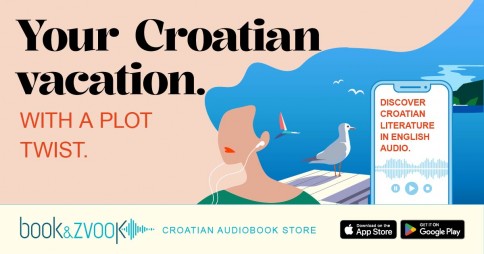
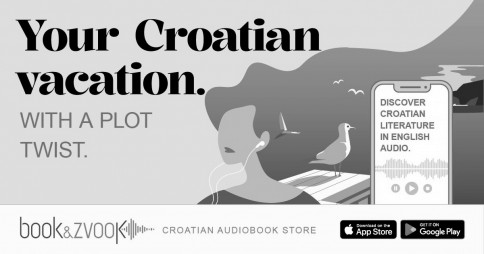
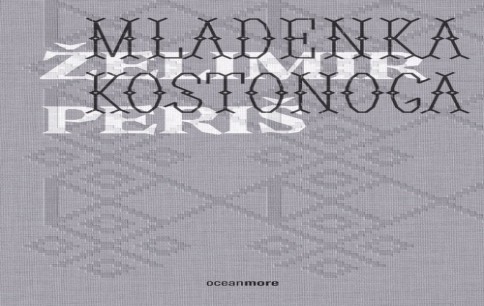
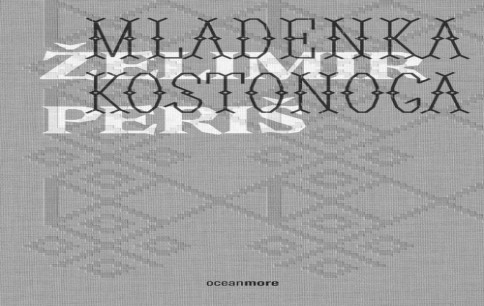




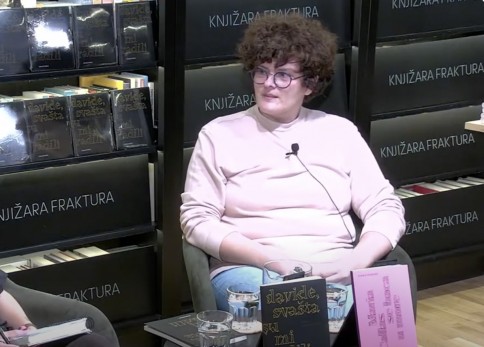

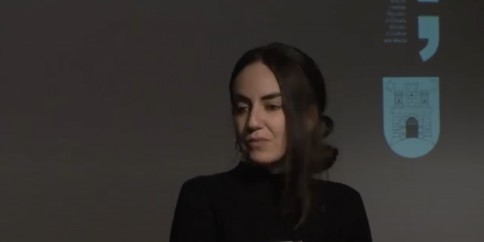









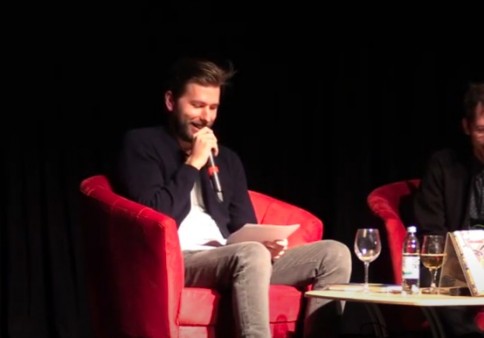














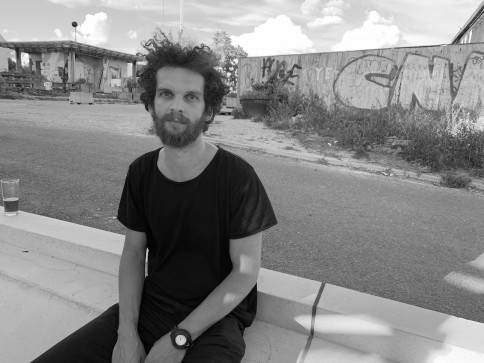




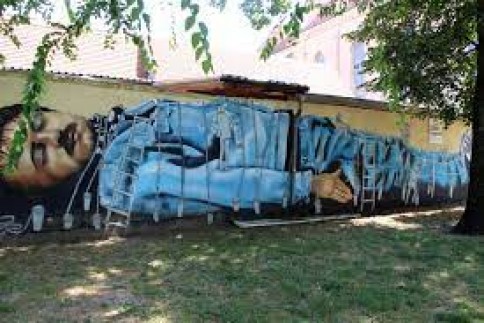
























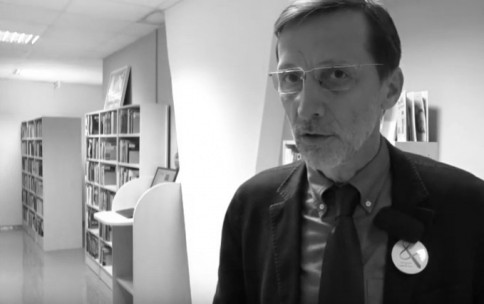



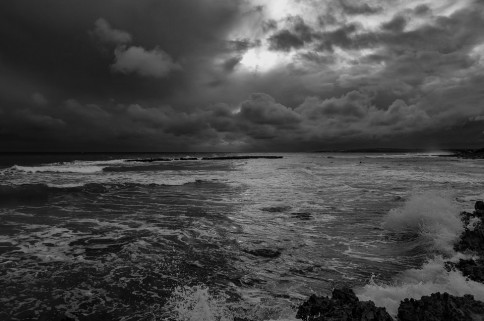


















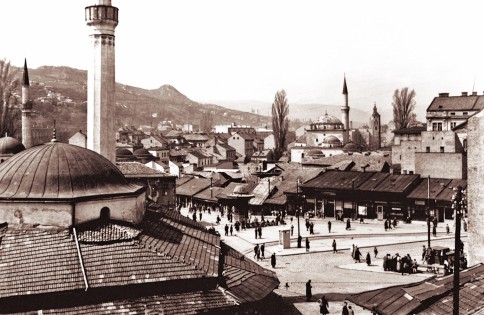





















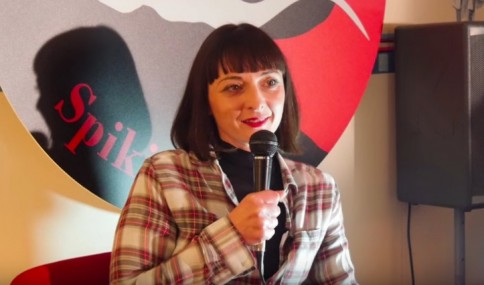
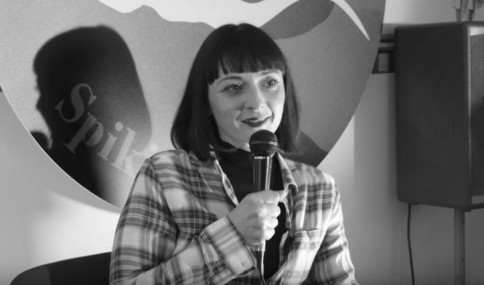




















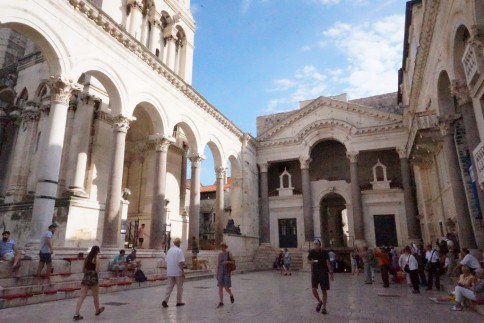





































































.jpg)
.jpg)




